LOOK FOR THE WOMAN
BOOKS BY JAY ROBERT NASH
Fiction
On All Fronts
A Crime Story
Nonfiction
Dillinger: Dead or Alive?
Citizen Hoover, A Critical Study of the Life and Times of J. Edgar Hoover and His F.B.I.
Bloodletters and Badmen, A Narrative Encyclopedia of American Criminals from the Pilgrims to the Present
Hustlers and Con Men, An Anecdotal History of the Confidence Man and His Games
Darkest Hours, A Narrative Encyclopedia of Worldwide Disasters from Ancient Times to the Present
Among the Missing, An Anecdotal History of Missing Persons from 1800 to the Present
Murder, America, Homicide in the United States from the Revolution to the Present.
Almanac of World Crime
Poetry
Lost Natives & Expatriates
Theater
The Way Back
Outside the Gates
1947 (Last Rites for the Boys)
Published by M. Evans
An imprint of The Rowman & Littlefield Publishing Group, Inc.
4501 Forbes Boulevard, Suite 200, Lanham, Maryland 20706
www.rowman.com
Unit A, Whitacre Mews, 26-34 Stannary Street, London SE11 4AB
Distributed by NATIONAL BOOK NETWORK
Copyright 1981 by Jay Robert Nash
All rights reserved. No part of this book may be reproduced in any form or by any electronic or mechanical means, including information storage and retrieval systems, without written permission from the publisher, except by a reviewer who may quote passages in a review.
British Library Cataloguing in Publication Information Available
Library of Congress Cataloging-in-Publication Available
 The paper used in this publication meets the minimum requirements of American National Standard for Information SciencesPermanence of Paper for Printed Library Materials, ANSI/NISO Z39.48-1992.
The paper used in this publication meets the minimum requirements of American National Standard for Information SciencesPermanence of Paper for Printed Library Materials, ANSI/NISO Z39.48-1992.
Printed in the United States of America
This book is for Judy
ACKNOWLEDGMENTS
M y deep gratitude goes to my deadline-racing typist, Sandy Horeis, and to Judy Anetsberger, who had the devastating job of proofreading the manuscript. Challenging graphic work was completed by Tom Buckley and Bernard Van Marm, the best in the business. Also of great help with photographs were Bill Kelly of Wide World, Ed Kita, and P. Noel Hepp.
I am also indebted to scores of people who provided printed source material, correspondence, and memorabiliaNeil H. Nash, Jack Jules Klein, Jr., Leonard Des Jardins, Phil Krap, Edgar Krebs, Bob Howe, Jerry Goldberg, Sydney Harris, P. Michael OSullivan, Hank Oettinger, Curt Johnson, Dan McConnell, Jim and Edie McCormick, Neal and Joan Amidei, Marc Davis, Bob Abel, Jack Conroy, Ray Peek-ner, Raymond Friday Locke, Jay Odell, Bob Connelly, Arnold L. Kaye. Also Lynette Francis, librarian for the San Francisco Chronicle; Susanna Shuster, editorial research librarian for the Los Angeles Times; Dorothy Frazier of the Denver Post library; Paul Cook of Parade magazine; Jennie DeLanctd of the Miami Herald; Gloria Osborne of Sentinel Star in Orlando, Florida; Dennis Laurie, newspaper curator for The American Antiquarian Society in Worcester, Massachusetts; George ONeal of the Pinkerton Detective Agency; and Scott Baker, chief of the reference department of the Troy (New York) Public Library.
Other librarians, from all over the country, were exceedingly helpful. These include John Edwards and Tom Hanley, School of Law, University of Missouri at Columbia; Pat Wilcoxson, Regenstein Library, University of Chicago; Peter Weil, microfilm, and the staff of the Newberry Library of Chicago. Invaluable assistance was also given by the staff at the School of Law, University of Chicago; the staff of the New York Public Library; the staff of the John Crerar Library at Chicagos Illinois Institute of Technology; the Chicago Historical Society; the New York Historical Society; and the San Francisco Historical Society.
I would especially like to thank correspondents living abroadPaul Allen (Paris), Roger Madden (London), David Halliday (Berlin), and G. Caetani (Rome).
PREFACE
M y reasons for writing this book are quite simple. Out of pure interest, I had been gathering information, both hard facts and anecdotal material, on women criminals for more than a decade. With such a monumental amount of information at hand, and in view of the increasing number of crimes committed by women today, as well as the increasingly sensational nature of those crimes, to write a book, an encyclopedia, in fact, on the subject seemed clearly in order.
To say that the number of crimes committed by women today is increasing is not to say that the percentage of all crimes that are committed by women has increased. It is still the men who commit from eighty to ninety percent of all serious crimes. (I quote the statistics, and yet statistics in the crime field can seldom be taken seriously, arrived at, as they are, for often specious reasons. Prepared and offered on federal, state, and local levels, they are typically manipulated either for political reasons, as is the case with the FBI's forever seeking to increase its annual budget by juggling fright statistics, or by state and local agencies tenaciously competing for funds and jobs.)
Interestingly, it is the off-beat and the inexplicable that dominate among the crimes of female offenders. In all recorded history, the female criminal has many times over excelled her male counterpart in daring robberies, labyrinthine confidence schemes, and heinous murders. In fact, the female murderer has proved herself easily as deadly as any male and certainly more insidious. Her motives, as a general rule, lack the clearheaded and darkly reasoned purposes of the male. Whim and fancy often rule here. Long-smoldering emotions often burn themselves out only after the victim of the female killerwhether male or femalehas been subjected to excruciating agony. Seldom is there the quick, clean stroke of death as with the male. It is almost the exclusive province of the woman who commits homicide, as was the case with Martha Grinder, Jane Toppan, Helene Jagado, and dozens more, to display an obsession to witness the slow death of the victim, most often by poison, although some atypical cases have involved use of the more manly axe, knife, or gun.
Historically, even the world of crime has proved male dominated, and the female criminal has been kept in her place, with little opportunity to follow certain criminal pursuits exclusively practiced and guarded by males. Notorious exceptions include pirate Anne Bonny, counterfeiter Ann Carson, stagecoach robber Pearl Hart, and pickpocket/fence Moll Cutpurse.
Through the centuries women were kept uneducated and close to the hearth. They saw little of the wicked outside world, and therefore their most serious crimes were domestic. Sensational early-day women criminals were the killers of husbands and loversAlice Arden, Mary Blandy, Ann Bilansky, Edith Carew, Augusta Fullam. Their punishments, moreover, were much more severe than those meted out to males committing similar offenses. Husband-killer Catherine Hayes, for instance, instead of merely being hanged, was strangled and burned to death before a great throng as a public warning, a governmental caution to any woman who might momentarily run a finger down the sharp edge of a kitchen knife while eyeing the throat of an oppressive spouse. In the twentieth century, details of such sordid murder cases as those of Ruth Snyder, Grace Lusk, and Wanda Stopa, who ostensibly killed for love, glutted the newspapers.


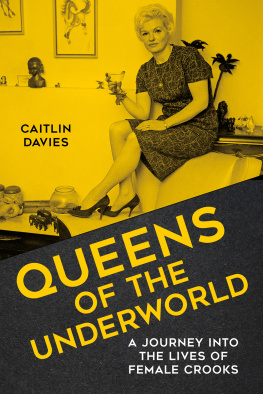
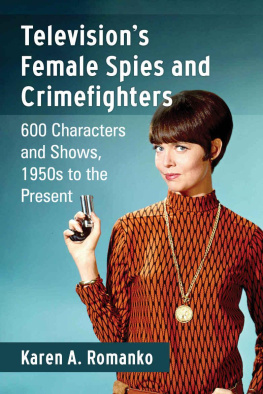

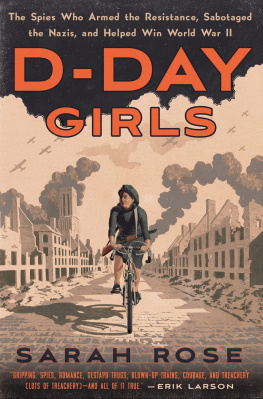
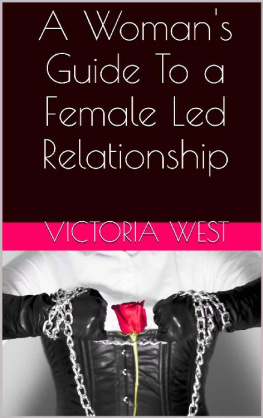
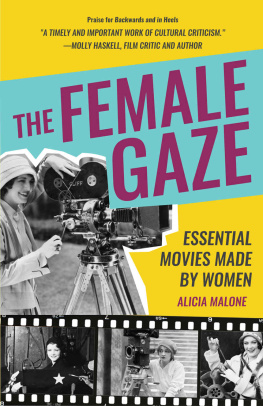
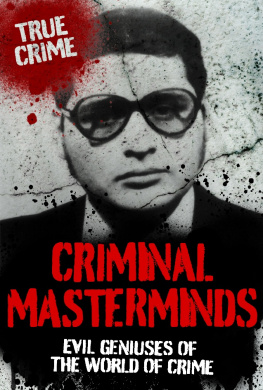
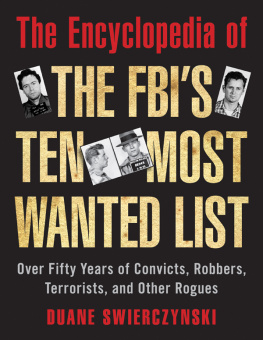

 The paper used in this publication meets the minimum requirements of American National Standard for Information SciencesPermanence of Paper for Printed Library Materials, ANSI/NISO Z39.48-1992.
The paper used in this publication meets the minimum requirements of American National Standard for Information SciencesPermanence of Paper for Printed Library Materials, ANSI/NISO Z39.48-1992.